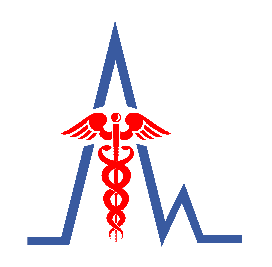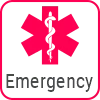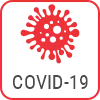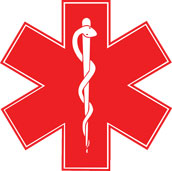Nephrology
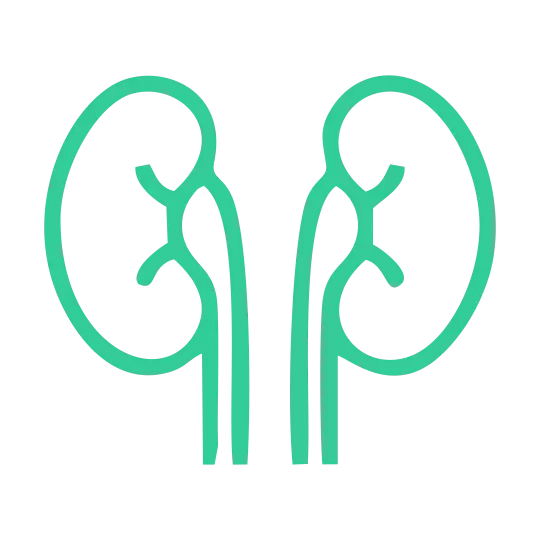
North City Hospital provides a comprehensive Nephro Care across the spectrum of kidney diseases in this part of Kolkata – Eastern India. We take rigorous precaution and perform DIALYSIS for patients with the most advanced DIALYSIS UNIT of Kolkata with modern technology (The FRESENIUS – 4008S). We take care of our patients with round the clock supports departments like – Lab Services, Emergency Services, Radiology Services, and Critical Care Services. An eminent team including Nephrologist, Urologist, Anesthesiologist, and technical experts are available to meet the NEPHRO CARE in totality with minimum chances of infection.
Services offered by North City hospital
- Management of Nephritis and Nephrotic Syndrome
- Treatment for acute and chronic renal failure
- Management of kidney diseases arising from Diabetes, Hypertension, Dysproteinemia, Poly Cystic Kidney Disease
- Treatment for stricture urethra
- Treatment for Hydronephrosis
- Haemodialysis
- Peritoneal Dialysis
Our team of Experts at Nephrology
| Name | Credentials |
| Dr. JAYANTA DUTTA | MBBS, MD, DM (NEPHRO) |
| Dr. ATANU PAL | MBBS, MD (MED), DM (NEPHRO) |
| Dr. P. S. MUKHERJEE | MBBS, (B’LORE), MRCP (UK), FRCP (LOND), FACP, FASN (USA) |
| Dr. BHASWAR KONAR (Associate) | MBBS, DNB, CCBDM, FELLOWSHIP IN DIALYSIS & INTENSIVE CARE |
CKD in Nephrology
CKD (Chronic Kidney Disease) in Nephrology is a condition of kidneys being damaged from many potential causes, resulting in gradual and permanent loss of Kidney function over time.
If unaware of the disease, kidney disease can gradually worsen over time, as the symptoms are often not noticed until the damage is severe. Early detection and diagnosis play critical roles in delaying further kidney damage that could ultimately cause kidney failure. At late stage, the treatment options are narrowed down to dialysis and kidney transplant.
- Diabetes
- Hypertension or high blood pressure
- Family history of CKD
- Aging
- Obesity
- Smoking
- Initial Screening Tests of CKD:
- Blood pressure measurement
- Urine test for protein (proteinuria)
- Blood test for creatinine
It can vary greatly since kidneys are associated with many functions of our body. Some people experience mild and unspecific symptoms while many experience no symptom at all. This is why CKD often is left undiagnosed until the late stage. Watch out for the following signs and symptoms:
- Fatigue and weakness
- Diminished mental ability
- Loss of appetite
- Sleeplessness
- Itchiness and skin irritation
- Muscle cramps, especially at night
- Swelling of legs and feet
- Puffiness around the eyes (especially in the morning)
- Frequent urination (especially at night)
Living a healthy lifestyle can help prevent diabetes, high blood pressure and kidney disease, or help keep them under control. Follow these tips to lower your risk for kidney disease and the problems that cause it:
- Follow a low-salt, low-fat diet
- Exercise at least 30 minutes on most days of the week
- Have regular check-ups with your doctor
- Do not smoke or use tobacco
- Limit alcohol
Damage to your kidneys is usually permanent. Although the damage cannot be fixed, you can take steps to keep your kidneys as healthy as possible for as long as possible. You may even be able to stop the damage from getting worse.
- Control your blood sugar if you have diabetes.
- Keep a healthy blood pressure.
- Follow a low-salt, low-fat diet.
- Exercise at least 30 minutes on most days of the week.
- Keep a healthy weight.
- Do not smoke or use tobacco.
- Limit alcohol.
- Talk to your doctor about medicines that can help protect your kidneys.
If you catch kidney disease early, you may be able to prevent kidney failure.
Dialysis
Kidneys are the responsible part of human body for filtering the liquid waste products from blood to maintain normal salt and water balance in our body. But those who are afflicted by Kidney diseases, Dialysis is the substitute procedure for many of the normal functions of Kidney.
Advanced Kidney failure results in gradual accumulation of waste products and extra fluids in the body that healthy Kidneys would normally remove. When your Kidney functions falls to around 10% of that of a healthy Kidney, you may start experiencing the symptoms of Kidney failure. Some non-specific symptoms:
- Tiredness
- Weakness
- Insomnia (not being able to sleep) or needing more sleep
- Swelling
- Passing less urine than you normally would
Dialysis removes excess waste products and excess fluids from your body. It also replaces certain substances in your body to a limited extent, balancing or normalizing the levels of certain minerals also known as electrolytes. Dialysis also performs the important function of regulating your blood acidity, or pH level.
- Management of Nephritis and Nephrotic Syndrome
- Treatment for acute and chronic renal failure
- Management of kidney diseases arising from Diabetes, Hypertension, Dysproteinemia, Poly Cystic Kidney Disease
- Treatment for stricture urethra
- Treatment for Hydronephrosis
- Haemodialysis
- Peritoneal Dialysis
Amongst above all procedures Haemodialysis and Peritoneal Dialysis are the most commonly performed techniques in today’s health scenario.
In this process blood from the body is taken via a needle inserted into a fistula, graft or dialysis line and is passed through a Haemodialysis machine. The circuit has a filter containing a special permeable membrane called a Dialyser (artificial kidney). Blood and dialysis fluids flow through on either side of the membrane to allow the exchange of substances. Blood returns to your body via a second needle. Treatment usually requires dialysis three times a week at 4 hour sessions, usually on a Monday, Wednesday, Friday or on a Tuesday, Thursday and Saturday.
This type of dialysis takes place inside your body. The peritoneal membrane which lines your abdomen acts as a dialysis filter. A tube (Peritoneal Catheter) is inserted into your abdomen through the skin. This catheter is left in-situ and is used for introducing dialysis fluids inside your abdomen.
Dialysis treatment will relieve many of your symptoms of kidney failure, but unfortunately this is not a total substitute for your kidneys. Your kidneys work 24 hours a day, 7 days a week. There is no promise that you will feel 100% fit on dialysis and there will be dietary and fluid restrictions as well as medication that you must take. You will be advised on the restrictions by your doctor and renal dietitian. Your dietary restrictions will also include a low potassium diet and/or a low phosphate diet. Further dietary advice will be given by the renal dietitian.
** You are always advised to consult a dietician and follow Diabetic Renal Diet.
- Isolated Dialysis
- SLED
DTPA SCAN: Renal DTPA scan is a process for diagnosis and evaluation of kidney functioning. It involves intravenous administration of radiopharmaceutical material to assess the drainage pattern of kidneys and to find out if any area is not functioning properly. It is available in our Diagnostic division.
Machine Used-Siemens Symbia T
DMSA Scan: A DMSA scan is a radionuclide scan that uses dimercaptosuccinic acid (DMSA) in assessing renal morphology, structure and function. Radioactive technetium-99m is combined with DMSA and injected into a patient, followed by imaging with a gamma camera after 2-3 hours. DMSA scan is used to assess the function and location of the kidneys, that is, to check how well the kidneys are working.
